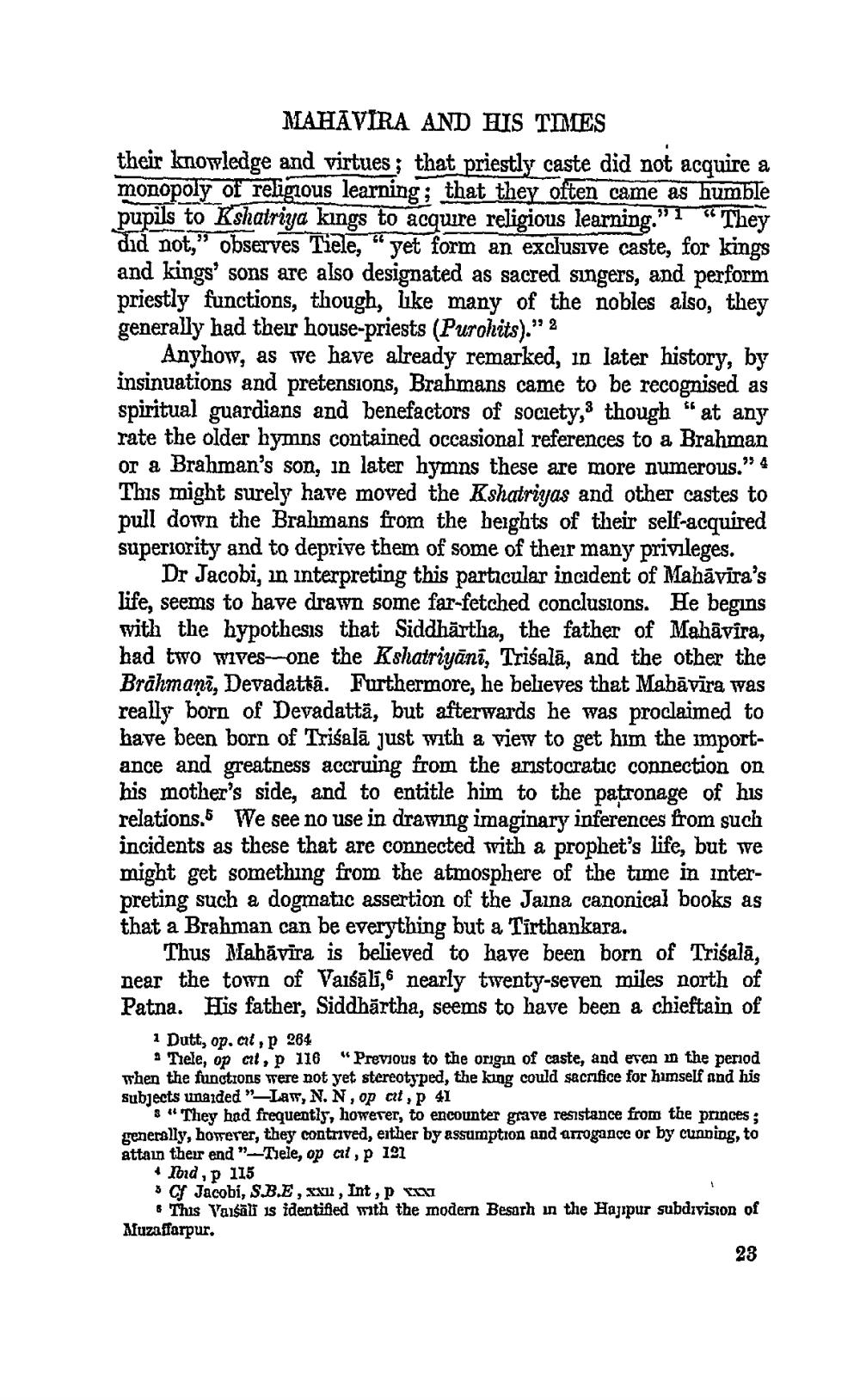________________
MAHAVIRA AND HIS TIMES their knowledge and virtues ; that priestly caste did not acquire a monopoly of religious learning; that they often came as humble pupils to Kshatriya kings to acquire religious learning." T «They did not," observes Tiele," yet form an exclusive caste, for kings and kings' sons are also designated as sacred singers, and perform priestly functions, though, like many of the nobles also, they generally had their house-priests (Purohits)." 2
Anyhow, as we have already remarked, in later history, by insinuations and pretensions, Brahmans came to be recognised as spiritual guardians and benefactors of society, though " at any rate the older hymns contained occasional references to a Brahman or a Brahman's son, in later hymns these are more numerous." 4 This might surely have moved the Kshatriyas and other castes to pull down the Brahmans from the beghts of their self-acquired superiority and to deprive them of some of their many privileges.
Dr Jacobi, in interpreting this particular incident of Mahāvīra's life, seems to have drawn some far-fetched conclusions. He begins with the hypothesis that Siddhārtha, the father of Mahāvīra, had two wives--one the Kshatriyāni, Trišalā, and the other the Brāhmani, Devadattā. Furthermore, he believes that Mabāvīra was really born of Devadatta, but afterwards he was proclaimed to have been born of Tribalā just with a view to get him the importance and greatness accruing from the aristocratic connection on his mother's side, and to entitle him to the patronage of his relations. We see no use in drawing imaginary inferences from such incidents as these that are connected with a prophet's life, but we might get something from the atmosphere of the time in interpreting such a dogmatic assertion of the Jaina canonical books as that a Brahman can be everything but a Tirthankara.
Thus Mabāvīra is believed to have been born of Trisalā, near the town of Vaišāli,6 nearly twenty-seven miles north of Patna. His father, Siddhartha, seems to have been a chieftain of
1 Dutt, op.at , p 264
• Trele, op al, p 116 “Previous to the origin of caste, and even in the period when the functions were not yet stereotyped, the king could sacrifice for himself and his Subjects unaided "-LAW, N. N, op cit, p 41
& "They had frequently, however, to encounter grave resistance from the princes; generally, howerer, they contrived, either by assumption and arrogance or by cunning, to attain their end "-Tiele, op cit, P 121
+ lord , p 115 s Jacobi, S.B.E, X12, Int , P
• This Vaišāli is identified with the modern Besarh in the Hajipur subdivision of Mfuzaffarpur.
23




